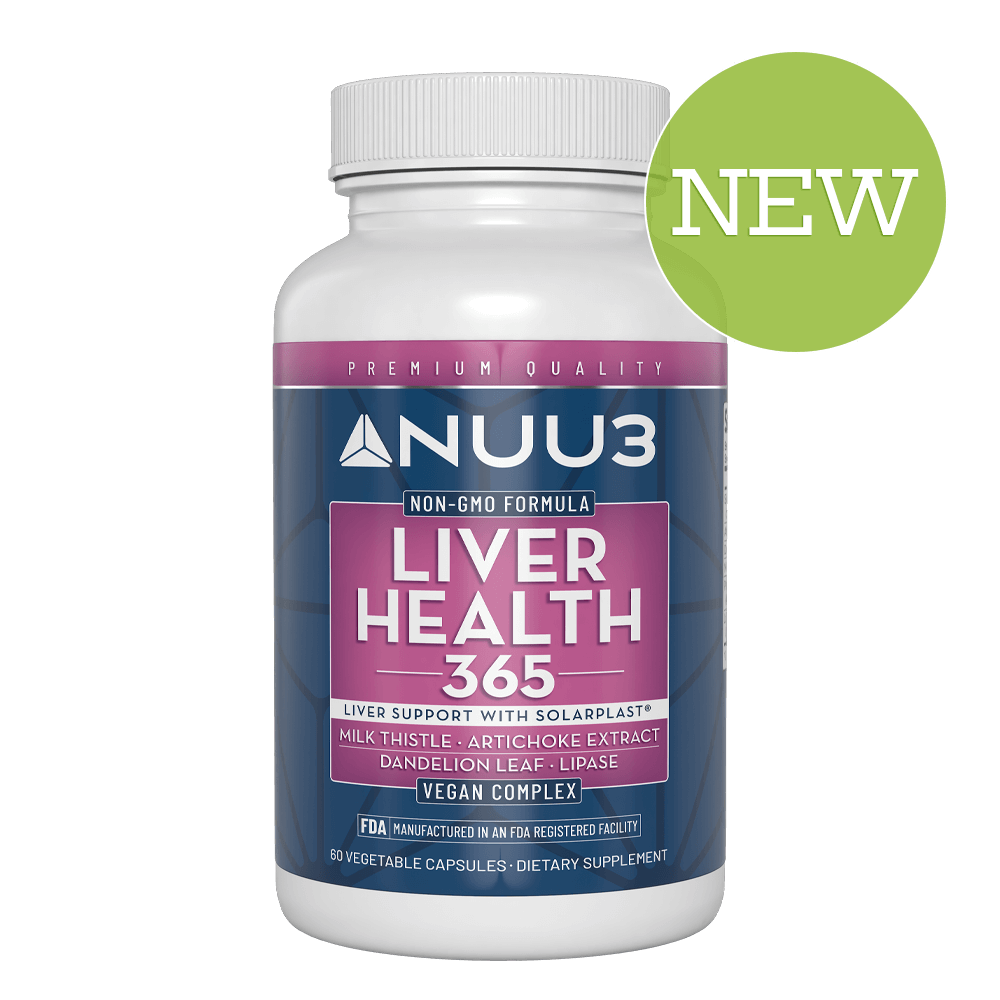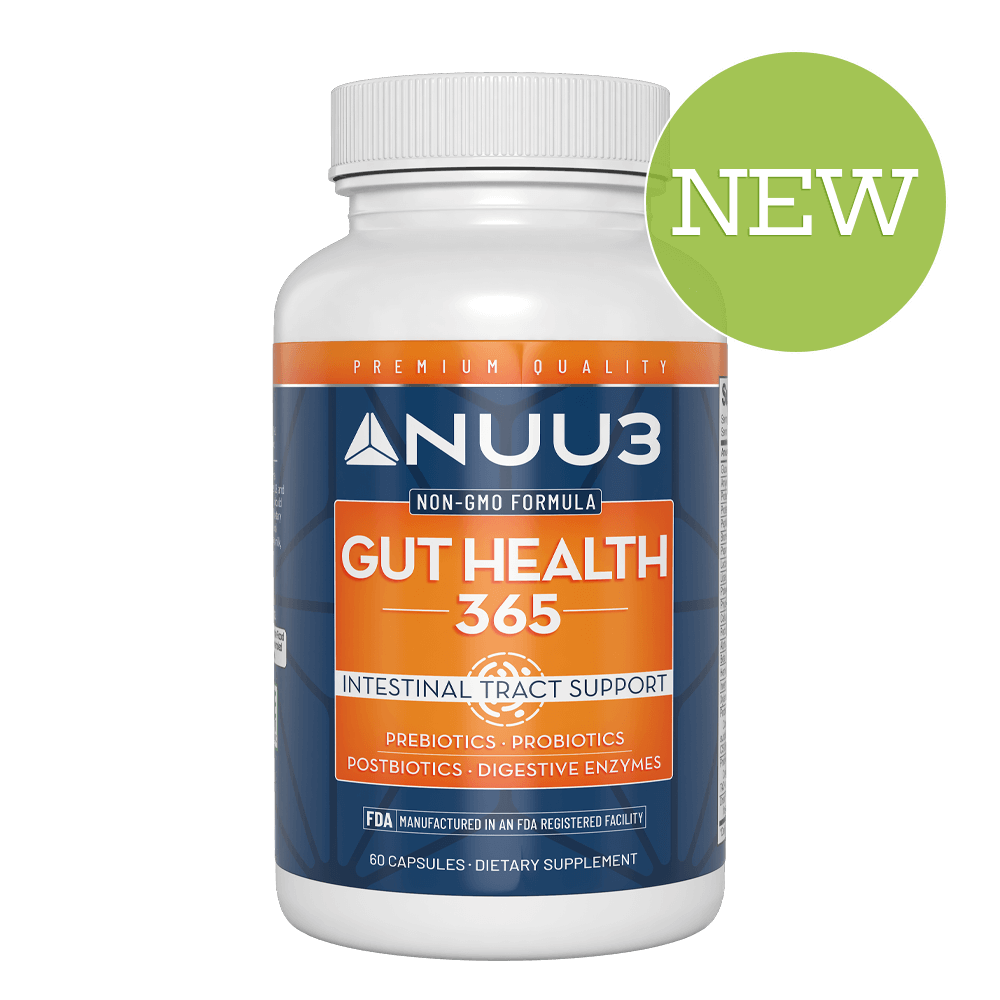Top Vitamins for Liver Repair and Detox

Introduction
The liver is a vital organ that performs over 500 essential functions, including detoxification, metabolism, and nutrient storage. Maintaining liver health is crucial for overall well-being, as liver impairment can lead to serious conditions such as cirrhosis, liver cancer, and liver failure. Factors like excessive alcohol consumption, poor diet, obesity, and viral infections can damage the liver. Adopting a healthy lifestyle, including a balanced diet, regular exercise, and avoiding excessive alcohol intake, is essential to support liver function and overall health.
Importance of Liver Health
The liver is a vital organ that performs over 500 essential functions, playing a central role in maintaining overall health. Its primary responsibilities include:
- Detoxification: The liver filters toxins from the bloodstream, converting them into harmless substances or facilitating their elimination.
- Metabolism: It processes nutrients from food, converting them into energy and essential molecules necessary for bodily functions.
- Bile Production: The liver produces bile, a substance crucial for digesting fats and absorbing fat-soluble vitamins.
- Storage: It stores vitamins and minerals, such as vitamins A, D, E, K, and B12, as well as iron and glycogen, releasing them as needed to maintain balance.
- Synthesis of Proteins: The liver synthesizes vital proteins, including albumin, which regulates blood volume and pressure, and clotting factors essential for blood coagulation.
Maintaining liver health is crucial because impairment can lead to serious conditions, such as cirrhosis, liver cancer, and liver failure. Factors like excessive alcohol consumption, poor diet, obesity, and viral infections can damage the liver. Given its central role in detoxifying harmful substances, a compromised liver affects not only digestion and metabolism but also the immune system and overall well-being. Therefore, adopting a healthy lifestyle, including a balanced diet, regular exercise, and avoiding excessive alcohol intake, is essential to support liver function and overall health.
Vitamins That Support Liver Repair
Maintaining liver health is crucial for overall well-being, as the liver plays a central role in detoxification, metabolism, and nutrient storage. Incorporating specific vitamins into your diet may support liver repair and function. Below is an overview of key vitamins that may aid in liver health:
Vitamin A
Vitamin A is essential for immune function and cellular health, both of which are vital for liver repair. It aids in the regeneration of liver cells and supports the immune system in combating infections that could harm the liver. It's important to consume this vitamin in moderation and preferably through dietary sources such as carrots, sweet potatoes, and leafy greens. Consulting with a healthcare provider before starting any vitamin A supplementation is advisable to ensure safe and appropriate use.
Vitamin D
Vitamin D plays a role in modulating the immune system and may help reduce inflammation in the liver. Deficiency in vitamin D is common among individuals with liver disease, and supplementation might improve liver function and slow disease progression. Natural sources include fatty fish like salmon and mackerel, fortified dairy products, and exposure to sunlight. Monitoring vitamin D levels and consulting with a healthcare professional before supplementation is recommended to avoid potential toxicity.
Vitamin E
As a potent antioxidant, vitamin E helps protect liver cells from oxidative stress and inflammation. Studies suggest that vitamin E supplementation can improve liver function in individuals with non-alcoholic fatty liver disease (NAFLD). Dietary sources rich in vitamin E include nuts, seeds, spinach, and broccoli. While beneficial, high doses of vitamin E supplements can lead to adverse effects; therefore, it's important to seek medical advice before initiating supplementation.
Vitamin C
Vitamin C is a powerful antioxidant that reduces oxidative stress in the liver and supports the immune system, aiding in liver repair processes. It also enhances the absorption of iron, preventing iron overload, which can be detrimental to liver health. Sources of vitamin C include citrus fruits, strawberries, bell peppers, and Brussels sprouts.
B Vitamins
B vitamins, including B1 (thiamine), B6 (pyridoxine), and B12 (cobalamin), are crucial for liver function and energy metabolism. Deficiencies in these vitamins are common in liver disease and can exacerbate liver damage. They assist in the breakdown of carbohydrates, fats, and proteins, facilitating detoxification processes in the liver. Dietary sources encompass whole grains, legumes, eggs, dairy products, and leafy green vegetables.
Incorporating these vitamins through a balanced diet may support liver health and aid in its repair mechanisms.
Dietary Sources of Liver-Supporting Vitamins
The liver is a vital organ responsible for detoxifying harmful substances, metabolizing nutrients, and producing essential proteins. To maintain optimal liver health, it’s important to support this organ with the right vitamins and nutrients. Several vitamins play a key role in enhancing liver function and promoting overall liver health. Below are some liver-supporting vitamins and their best dietary sources.
Vitamin A: Vitamin A is crucial for liver health because it helps with detoxification and supports the liver’s ability to process and eliminate toxins. It also aids in the repair of liver cells and tissue regeneration. However, excessive amounts of vitamin A can be harmful, so it’s essential to consume it in moderation.
Dietary Sources:
- Liver (beef, chicken, or fish)
- Carrots, sweet potatoes, and butternut squash (rich in beta-carotene, a precursor to vitamin A)
- Dark leafy greens such as spinach and kale
- Egg yolks
Vitamin C: Vitamin C is a powerful antioxidant that helps protect the liver from oxidative stress and supports detoxification processes. It also aids in the synthesis of collagen, which is important for the liver’s structural integrity.
Dietary Sources:- Citrus fruits like oranges, lemons, and grapefruits
- Bell peppers, strawberries, and broccoli
- Kiwi, papaya, and tomatoes
Vitamin E: Vitamin E acts as an antioxidant, helping to reduce inflammation and oxidative damage in liver cells. It is particularly beneficial for those with fatty liver disease and may help improve liver function by reducing the accumulation of fat in liver tissues.
- Nuts and seeds (almonds, sunflower seeds, hazelnuts)
- Vegetable oils (sunflower oil, wheat germ oil)
- Avocados
- Spinach and Swiss chard
B Vitamins: B vitamins, especially B6, B12, and folic acid, are vital for liver detoxification processes, protein metabolism, and the production of enzymes that support liver health. These vitamins also help in reducing levels of homocysteine, an amino acid linked to liver damage when in excess.
Dietary Sources:- B6: Poultry, fish, potatoes, bananas
- B12: Animal-based foods like meat, fish, dairy products, and eggs
- Folate: Leafy greens, legumes, fortified cereals, and citrus fruits
Vitamin D: Vitamin D is crucial for immune function and helps reduce liver inflammation. It also plays a role in liver cell repair and regeneration. Many people, especially those with liver conditions like cirrhosis or fatty liver disease, may have low levels of vitamin D.
Dietary Sources:- Fatty fish (salmon, mackerel, sardines)
- Fortified dairy products and plant-based milks
- Egg yolks
- Mushrooms (especially those exposed to sunlight)
Milk Thistle and Silymarin: While not a vitamin, milk thistle is often used as a herbal remedy to support liver health. The active compound, silymarin, is a powerful antioxidant that helps protect liver cells from damage, supports liver regeneration, and aids in detoxification. It has been shown to be beneficial in treating liver diseases such as hepatitis and cirrhosis.
Dietary Sources:Milk thistle supplements are commonly available in capsule or tincture form, but consuming milk thistle seeds in food preparations (like smoothies or teas) is also a common practice. One popular option is NUU3 Liver Health 365, which combines milk thistle with other liver-supporting ingredients like dandelion leaf and Solarplast to enhance detoxification and promote overall liver function. This supplement is designed to provide a convenient and concentrated dose of silymarin, the active compound in milk thistle, along with additional antioxidants to help protect and regenerate liver cells.
Choline: Choline is an essential nutrient that supports liver health by preventing the accumulation of fat in the liver (a condition known as fatty liver). It is involved in the synthesis of phospholipids, which are vital for maintaining the structure of liver cell membranes.
Dietary Sources:- Eggs (especially egg yolks)
- Liver (beef or chicken)
- Fish, chicken, and turkey
- Cruciferous vegetables (broccoli, Brussels sprouts)
- Nuts and seeds
Lifestyle Factors Supporting Liver Health
The liver is a remarkable organ, responsible for detoxification, nutrient processing, and energy production, among many other vital functions. Maintaining liver health requires more than just supplements; it also involves adopting a lifestyle that supports the liver's ability to function optimally. Here are several key lifestyle factors that can help support and protect liver health:
1. Healthy Diet
A nutrient-dense diet is one of the most important factors in maintaining a healthy liver. The liver works tirelessly to metabolize nutrients, store vitamins, and eliminate toxins, so providing it with the right fuel is crucial.Foods that Support Liver Health:
- Fruits and Vegetables: High in antioxidants, fiber, and vitamins, fruits and vegetables like leafy greens, berries, cruciferous vegetables (broccoli, Brussels sprouts), and citrus fruits help reduce oxidative stress and support detoxification processes.
- Healthy Fats: Omega-3 fatty acids found in fatty fish (salmon, mackerel, sardines), nuts, seeds, and olive oil are anti-inflammatory and help prevent the buildup of fat in the liver (a condition known as fatty liver disease).
- Whole Grains: Brown rice, oats, quinoa, and barley provide fiber, which helps regulate blood sugar levels and supports the liver's detox functions.
- Lean Proteins: High-quality proteins, such as those from beans, legumes, chicken, turkey, and fish, are essential for liver repair and function.
Foods to Avoid:
- Processed Foods: High in added sugars, unhealthy fats, and artificial additives, processed foods can increase the liver's workload and contribute to liver inflammation.
- Excessive Alcohol: Chronic alcohol consumption is one of the leading causes of liver damage and conditions like fatty liver, alcoholic hepatitis, and cirrhosis.
- Trans Fats and Saturated Fats: Found in fried foods, baked goods, and processed meats, these fats can increase liver fat accumulation and inflammation.
2. Regular Exercise
Physical activity is vital for overall liver health. Regular exercise helps maintain a healthy weight, reduces the risk of fatty liver disease (NAFLD), improves insulin sensitivity, and promotes healthy circulation.
Benefits of Exercise for the Liver:
-
Weight Management: Maintaining a healthy weight is key to reducing the risk of developing non-alcoholic fatty liver disease (NAFLD). Excess fat, especially visceral fat (fat around the organs), can accumulate in the liver and impair its function. One way to support weight management is through the inclusion of natural supplements like NUU3 ACV Gummies. These apple cider vinegar (ACV) gummies are a convenient and easy way to incorporate the benefits of ACV into your daily routine. ACV has been shown to help with weight loss by promoting satiety, supporting healthy digestion, and regulating blood sugar levels—factors that all contribute to better liver health.
- Insulin Sensitivity: Exercise improves insulin sensitivity, reducing the risk of developing fatty liver disease and supporting overall liver health.
- Increased Blood Flow: Regular physical activity improves circulation, which helps the liver process nutrients and eliminate toxins more effectively.
Aim for at least 30 minutes of moderate-intensity exercise (such as brisk walking, cycling, or swimming) most days of the week. Incorporating strength training and flexibility exercises can also provide additional health benefits.
3. Hydration
The liver relies on adequate hydration to perform many of its detoxification and metabolic functions. Water helps to flush out toxins and waste products from the liver and other organs, aiding the body’s overall detoxification process.
How to Stay Hydrated:
- Drink plenty of water throughout the day (at least 8-10 cups for most people, more if you're physically active).
- Herbal teas like dandelion, milk thistle, or ginger can also help support liver health by promoting detoxification and aiding digestion.
4. Adequate Sleep
Sleep is a restorative process that allows the liver to repair and regenerate. Poor sleep quality or insufficient sleep can impair liver function, contribute to inflammation, and increase the risk of metabolic disorders such as fatty liver disease and insulin resistance. One way to support better sleep is by using supplements like NUU3 Sleep Support Gummies. These gummies are formulated with natural ingredients such as melatonin, chamomile, and valerian root, which are known for their calming and sleep-enhancing properties. By promoting a more restful night's sleep, NUU3 Sleep Support Gummies can help reduce stress levels, improve sleep quality, and support the body's natural repair processes, including liver regeneration.
Tips for Better Sleep:
- Aim for 7-9 hours of sleep per night.
- Maintain a consistent sleep schedule by going to bed and waking up at the same time each day.
- Avoid heavy meals, caffeine, and electronic screens before bedtime, as these can interfere with your ability to fall asleep.
5. Stress Management
Chronic stress can have a negative impact on liver health by increasing inflammation and disrupting the body’s balance of hormones and metabolic processes. When stress is ongoing, the body produces high levels of cortisol, which can impair liver function and contribute to fat buildup in the liver.
Effective Stress Reduction Techniques:
- Mindfulness and Meditation: These practices can reduce stress, calm the mind, and improve overall well-being.
- Yoga and Deep Breathing: These exercises help reduce tension in the body, improve circulation, and promote relaxation.
- Regular Relaxation: Setting aside time for hobbies, socializing, or simply unwinding can help manage chronic stress levels.
6. Avoid Toxins and Environmental Pollutants
The liver is responsible for filtering out toxins from the body, so minimizing exposure to harmful substances is essential for supporting its function. Avoiding toxins can help reduce the liver’s workload and prevent damage over time.
How to Reduce Toxin Exposure:
- Limit Alcohol Consumption: Chronic alcohol use is one of the primary contributors to liver damage and diseases such as cirrhosis and fatty liver disease.
- Be Cautious with Medications: Overuse of certain over-the-counter drugs (like acetaminophen) or prescription medications can strain the liver. Always follow dosing recommendations and avoid self-medicating.
- Avoid Environmental Pollutants: Minimize exposure to harmful chemicals, including household cleaners, pesticides, and industrial toxins, which can be processed by the liver.
- Quit Smoking: Smoking increases oxidative stress and inflammation, which can damage liver cells and reduce liver function over time.
7. Regular Liver Check-Ups
For those at higher risk of liver disease (such as people with a history of excessive alcohol use, obesity, or diabetes), regular check-ups with a healthcare provider are essential. Blood tests, imaging, and screenings can help detect liver issues early, enabling more effective intervention and prevention strategies.
You May Also Like to Read: Meditation for Sleep
Frequently Asked Questions:
Is vitamin A supplementation safe for people with liver damage or cirrhosis?
Vitamin A is essential for liver health, but caution is necessary when supplementing with it, especially in individuals with liver damage or cirrhosis. In people with impaired liver function, the liver’s ability to store and process vitamin A is compromised, and excessive amounts of vitamin A can lead to toxicity, potentially worsening liver damage. Therefore, while adequate vitamin A levels are necessary for liver repair, supplementation should be monitored closely by a healthcare professional to avoid toxicity. Foods rich in vitamin A, like carrots, sweet potatoes, and leafy greens, can also support liver health without the risk of over-supplementation.
Can a vitamin deficiency contribute to liver damage, and how can I correct it through diet or supplements?
Yes, vitamin deficiencies can contribute to liver damage. For example:
- Vitamin D deficiency is linked to a higher risk of liver fibrosis and other liver diseases.
- Vitamin B12 deficiency can impair liver function and increase the risk of fatty liver disease.
- Vitamin A deficiency can affect liver regeneration and immune function.
- Vitamin E deficiency can lead to oxidative stress, contributing to liver inflammation and damage.
How does vitamin E support liver recovery, especially in conditions like fatty liver disease?
Vitamin E is a potent antioxidant that helps protect liver cells from oxidative damage, which is a key factor in the progression of liver diseases like non-alcoholic fatty liver disease (NAFLD) and non-alcoholic steatohepatitis (NASH). Studies have shown that vitamin E supplementation can reduce liver inflammation and improve liver function in individuals with NAFLD. It helps to neutralize free radicals and prevent liver cell injury, potentially leading to a reduction in fat accumulation and fibrosis. However, it’s important to note that high doses of vitamin E should be taken under medical supervision, as excessive intake may have side effects.
Takeaway
Vitamins play a crucial role in supporting liver health, repair, and regeneration, particularly in individuals with liver disease. Key vitamins such as A, D, E, and the B complex are essential for maintaining optimal liver function, reducing inflammation, and protecting against oxidative stress. For example, vitamin D can help improve liver function and prevent complications, while vitamin E offers antioxidant benefits, particularly in conditions like fatty liver disease. However, it is important to approach vitamin supplementation with caution, especially in individuals with liver damage, as excessive amounts of certain vitamins, such as vitamin A, can be harmful.
Also by addressing vitamin deficiencies and supporting liver health through a balanced diet and proper supplementation, individuals can take important steps toward improving liver function and promoting long-term wellness.












